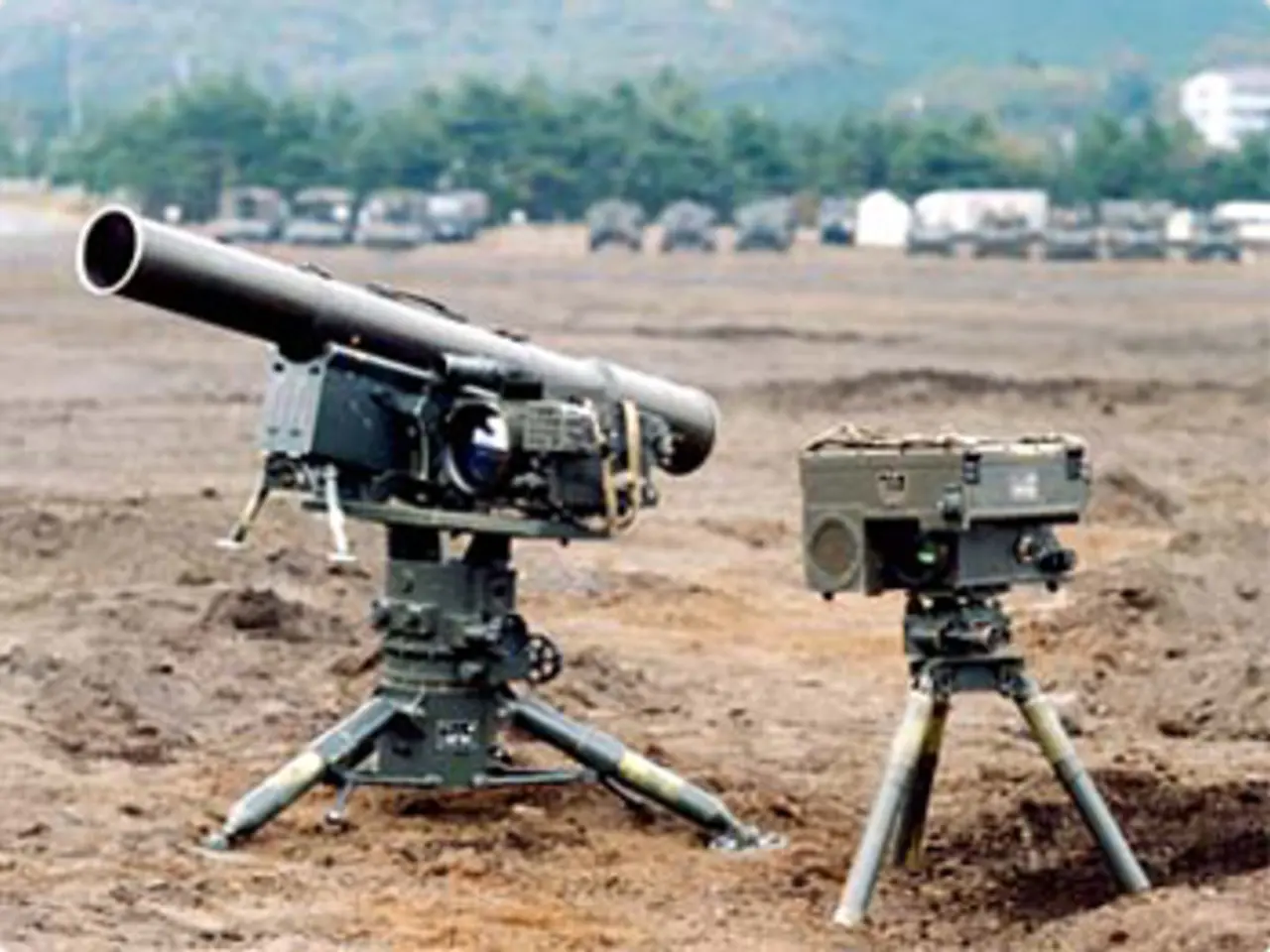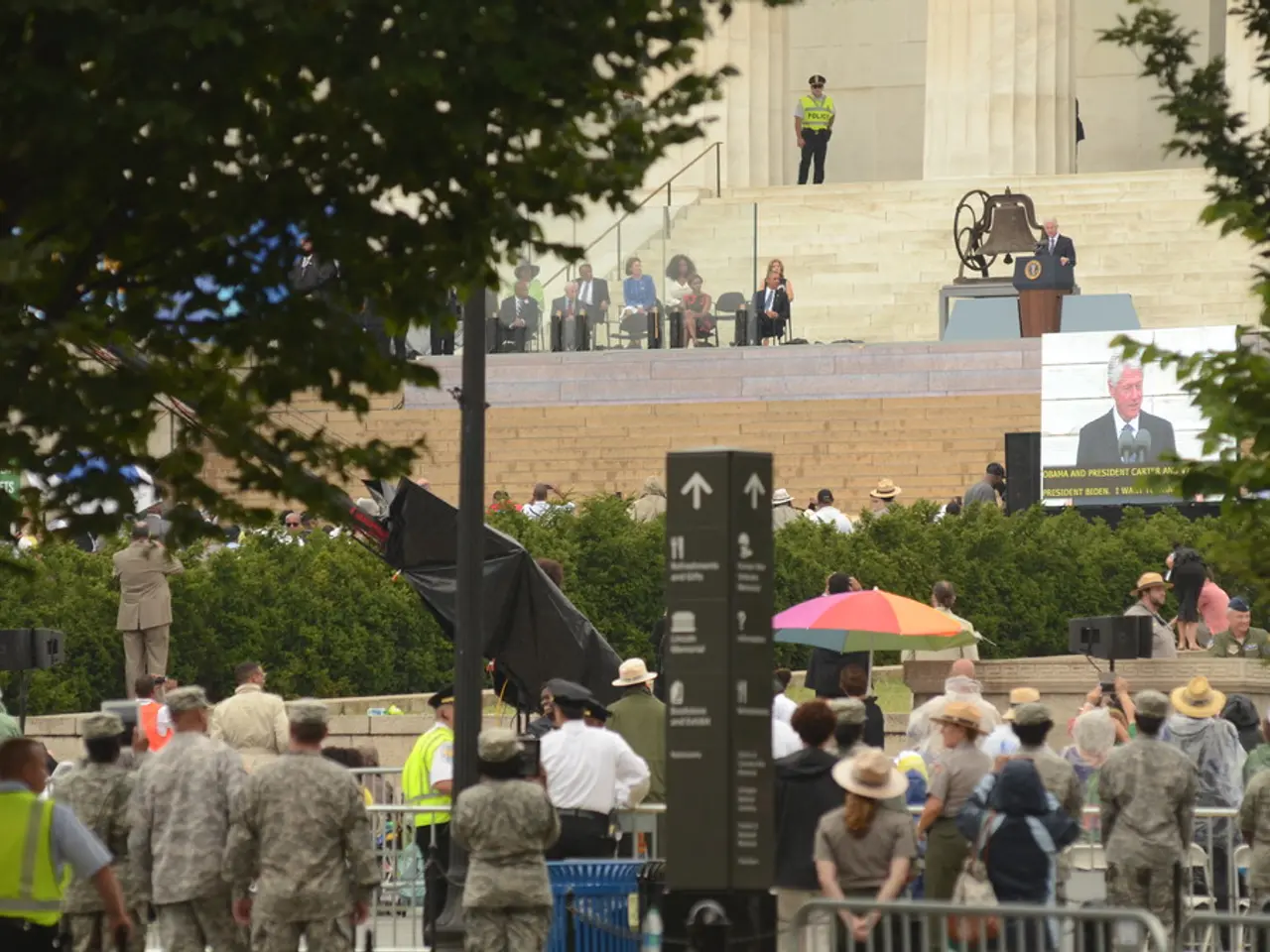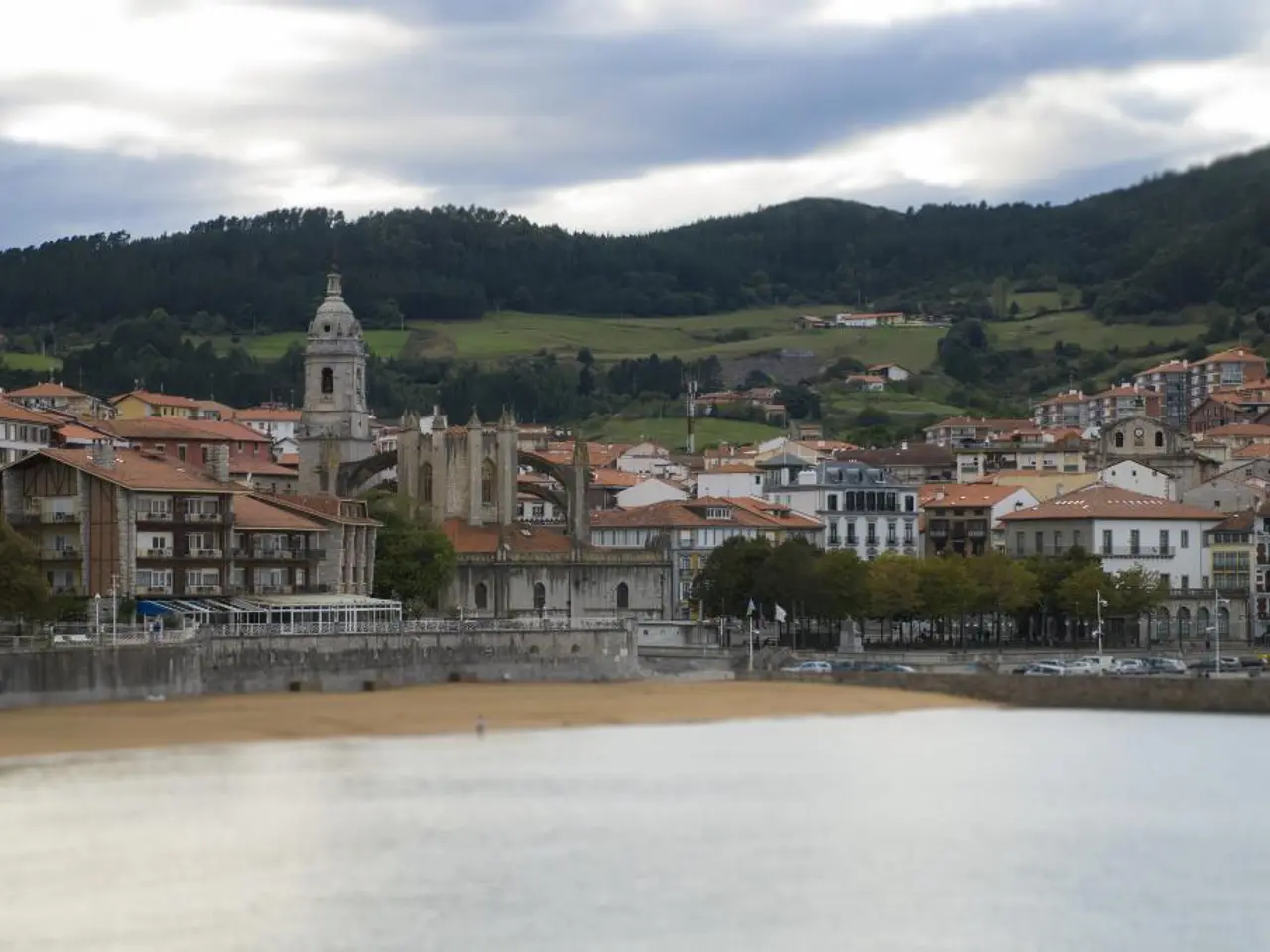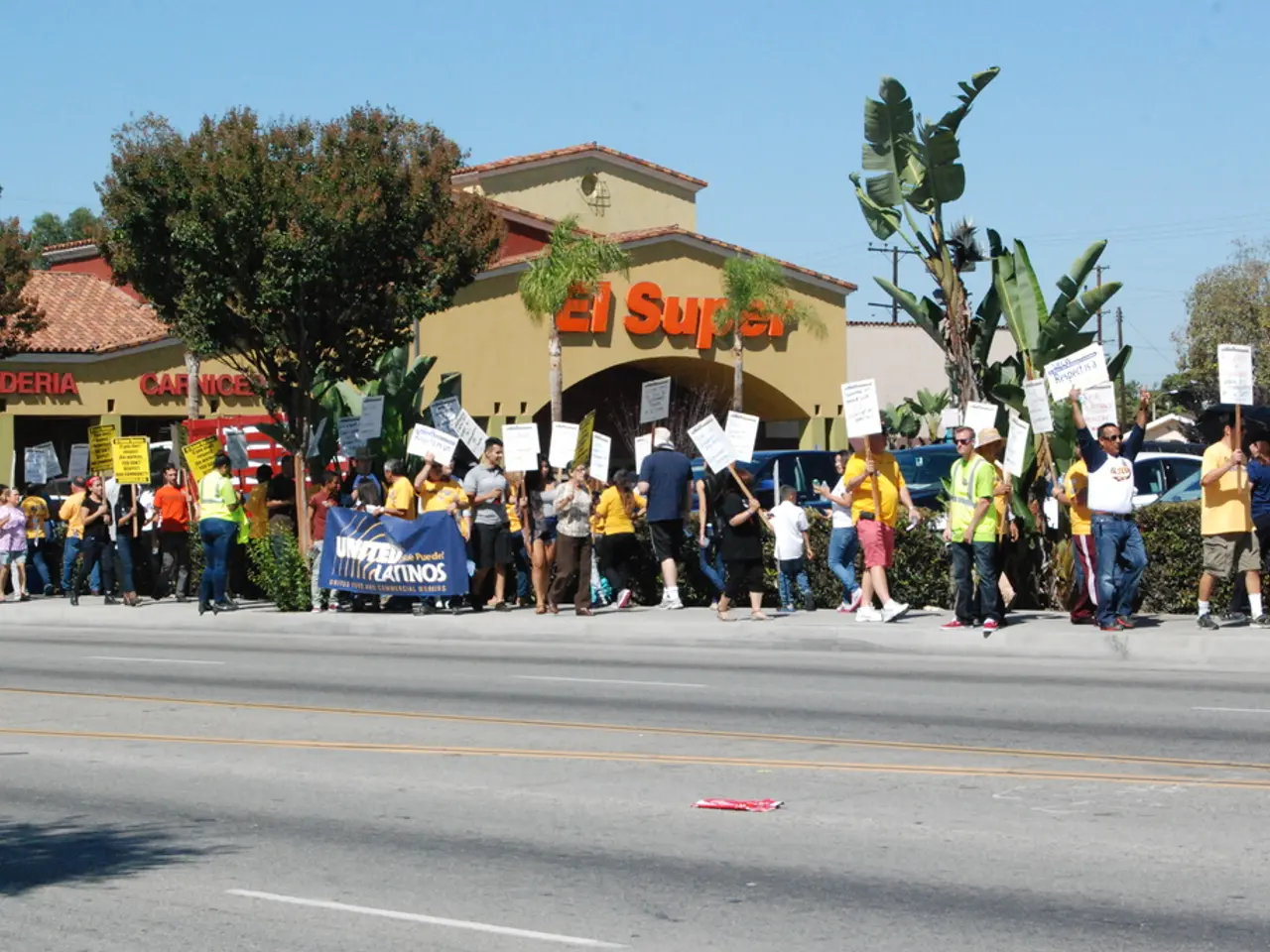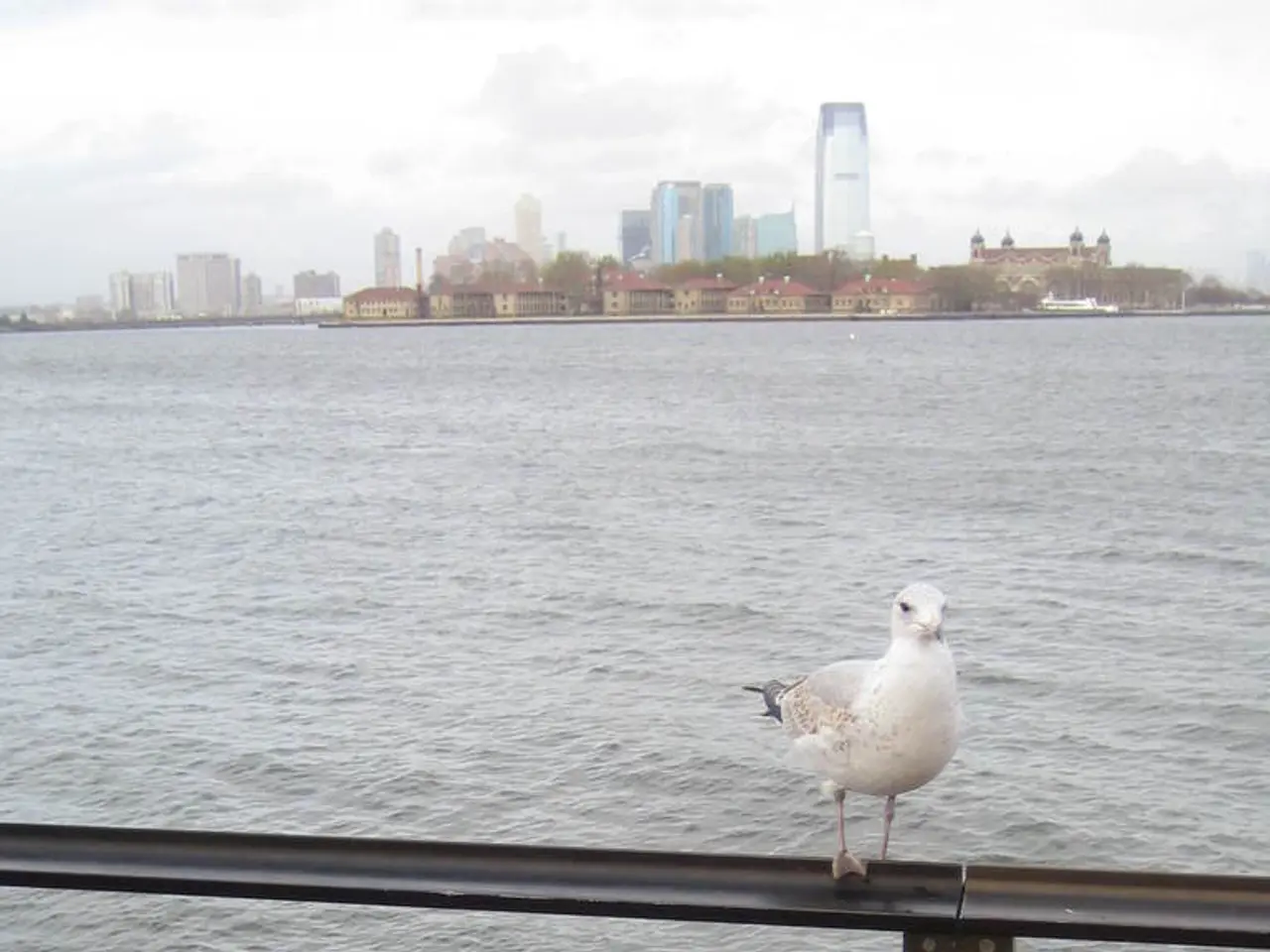Artisans engage in a head-to-head battle for their occupational rights
Germany's 2025 Federal Election: Key Issues Discussed at the Wahlforum
As Germany prepares for its 2025 federal election on February 23, a discussion forum was held in the Rheinisch Bergischer Kreis to address key issues facing the country. The event, organised by the district craftsmanship Bergisches Land, Unternehmensverband Bergisches Land e.V., and Handelsverband NRW - Rheinland, brought together candidates from the CDU, SPD, and Greens to discuss topics such as energy prices, bureaucratic reduction, trust in politics, infrastructure, mobility, financing, and skilled labor shortage [1][4].
Energy prices continue to be a major concern for voters and policymakers, with the need for sustainable and affordable solutions being paramount amidst global economic pressures [1]. Hinrich Schipper (SPD) suggested investing more in solar and wind energy, despite the initial cost, while Maik Außendorf (Greens) proposed considering the use of bicycles for short trips in the context of mobility, citing an example of a heating engineer who uses a modified cargo bike for deliveries [1].
Bureaucratic reduction is another critical demand, aiming to streamline government processes and foster business and innovation [1]. Caroline Bosbach (CDU) advocated for the reduction of bureaucracy, stating that excessive regulation is based on mistrust of the economy and is a hindrance to profits and investment. She suggested requiring responsible persons to consult with those directly affected before new laws are enacted [1]. Around 450 concrete proposals for reducing bureaucracy have been submitted, with approximately 10% of these included in the Administrative Burden Reduction Act [2].
Trust in politics is reportedly low, with critiques focused on perceived political inflexibility and unmet campaign promises, especially regarding immigration and fiscal reforms [2]. In an effort to improve trust, Dr. Oliver Schillings and Fred Busen moderated the discussion, encouraging open dialogue and constructive debate between the candidates [1].
Infrastructure and mobility are highlighted due to Germany’s aging transport networks and the urgent transition needed for greener, more efficient mobility systems [1]. Financing these investments remains difficult within the constraints of Germany’s constitutional debt brake, though recent amendments allow more flexibility for defense and presumably other priority areas [1].
The shortage of skilled labor is a pressing challenge that threatens economic competitiveness and growth, prompting calls for policy measures to attract and train qualified workers [1]. Christian Lindner could not attend the discussion, but a video message from him was played, addressing the need for a skilled workforce [1].
As the political climate is tense, with the far-right AfD accusing Chancellor Merz of electoral fraud without evidence, reflecting heightened political polarization [2], the Wahlforum serves as a platform to engage with Germany’s multi-dimensional challenges in the run-up to the 2025 federal election and underscores themes critical to the country’s future governance and economic strategy [1][4].
Marcus Otto, managing director of the district craftsmanship Bergisches Land, thanked Dr. Hermann-Josef Tebroke for his support of the craft and trade in the region during his tenure in the Bundestag. He also called for consensus among the parties and against extremism [1].
[1] [Local news source] [2] [National news source] [3] [Political party websites] [4] [Campaign websites]
- The 2025 Federal Election in Germany, scheduled on February 23, has policy-and-legislation topics such as energy prices, bureaucratic reduction, trust in politics, infrastructure, mobility, financing, and skilled labor shortage on the agenda.
- In the context of general-news, political events like the Wahlforum serve as platforms to engage with Germany's multi-dimensional challenges, underscoring policy debates critical to the country's future governance and economic strategy.

